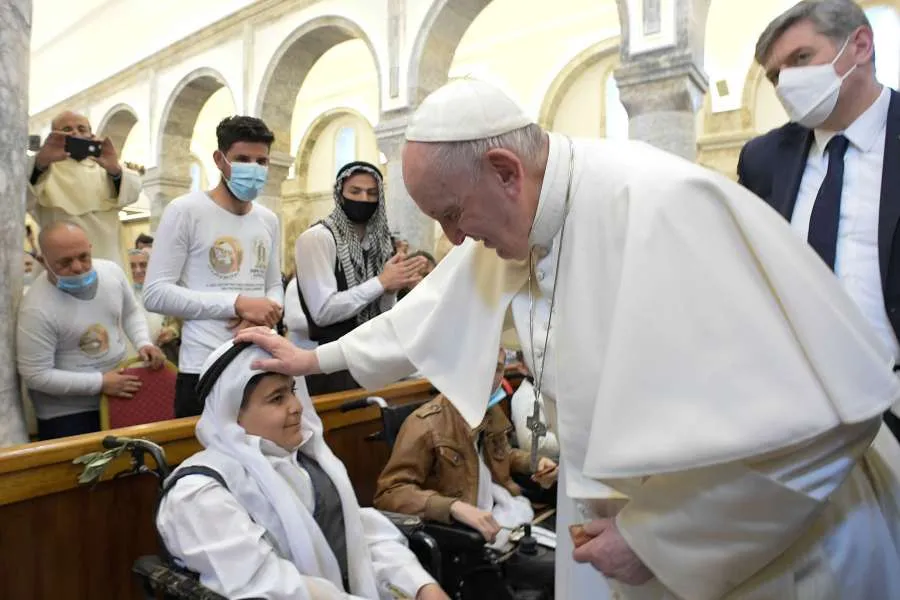“Now is the time to rebuild and to start afresh, relying on the grace of God, who guides the destinies of all individuals and peoples,” the pope said.
“You are not alone! The entire Church is close to you, with prayers and concrete charity.”
Before the pope’s remarks, Syriac Patriarch Ignatius Youssef III Younan of Antioch thanked Catholic charitable organizations that worked to rebuild destroyed churches and homes in the region, enabling Christians to return. He mentioned Aid to the Church in Need, L’Œuvre d’Orient, the Knights of Columbus, and the Hungarian government.
“The crowd that welcomed you, as father and pastor, is a part of those Christians who were uprooted in 2014 from their homes in Qaraqosh, Bartella, Baashika, Karemless, and other villages in the Nineveh Plains,” Younan said.
“Here, in the Nineveh Plains, a biblical land, in that month of August 2014, thousands of Christians, with their bishops, priests and religious, were, because of their faith, uprooted from their land and forced to seek refuge in Kurdistan,” he said.
(Story continues below)
He added: “We are proud that, despite the horrors of the persecution, the faithful present here with their refugee and distant families have remained faithful to their unwavering love for the Gospel of peace and justice, following the example of their heroic ancestors.”

Pope Francis said that this was the time “to restore not just buildings, but also the bonds of community.”
The pope prayed the Angelus with the local Christians, and added that he was grateful for the courage of mothers and all women in Iraq, praying that women in Iraq would be respected, protected, and provided with opportunities.
“As I arrived on the helicopter, I saw the statue of Mary on this Church of Immaculate Conception. To her I entrusted the rebirth of this city. Our Lady does not only protect us from on high, but comes down to us with a Mother’s love,” the pope said.
“Her image here has met with mistreatment and disrespect, yet the face of the Mother of God continues to look upon us with love. For that is what mothers do: they console, they comfort and they give life.”

The pope encouraged Iraqi Christians to “not lose hope,” urging them to “never tire of asking the saints for their intercession.”
“Let us pray tirelessly for the conversion of hearts and for the triumph of a culture of life, reconciliation and fraternal love between all men and women, with respect for differences and diverse religious traditions, in the effort to build a future of unity and cooperation between all people of goodwill,” he said.
Credit for the final two photos goes to EWTN Correspondent Colm Flynn.
Courtney Mares is a Rome Correspondent for Catholic News Agency. A graduate of Harvard University, she has reported from news bureaus on three continents and was awarded the Gardner Fellowship for her work with North Korean refugees.








